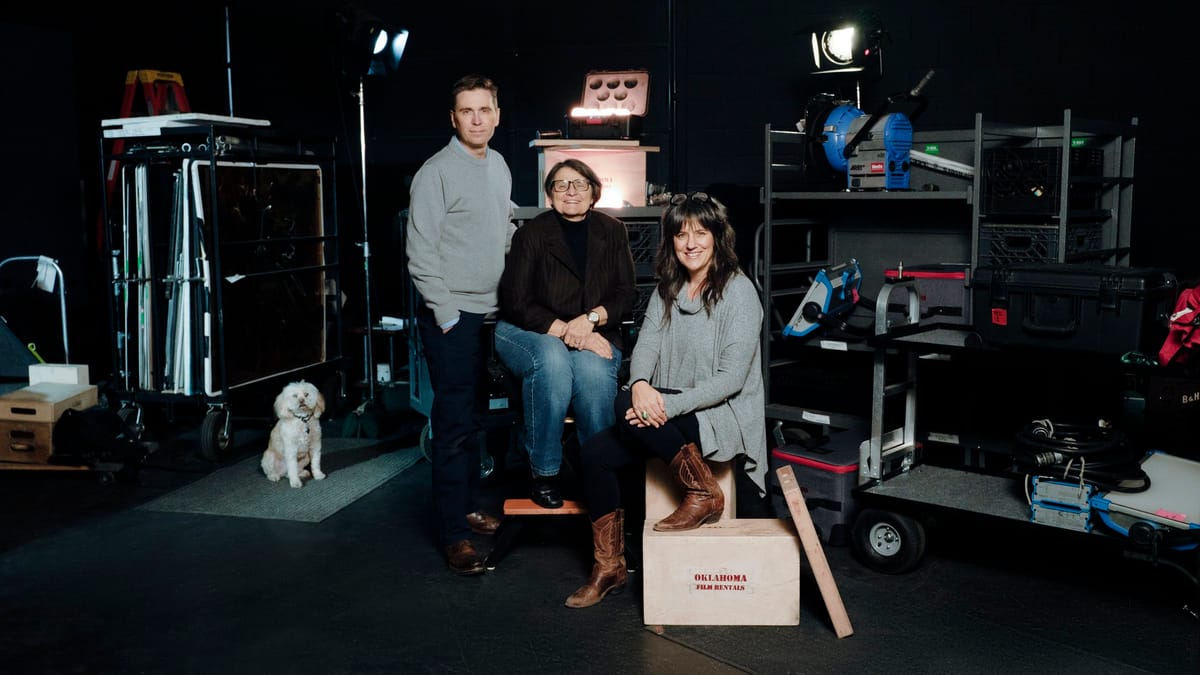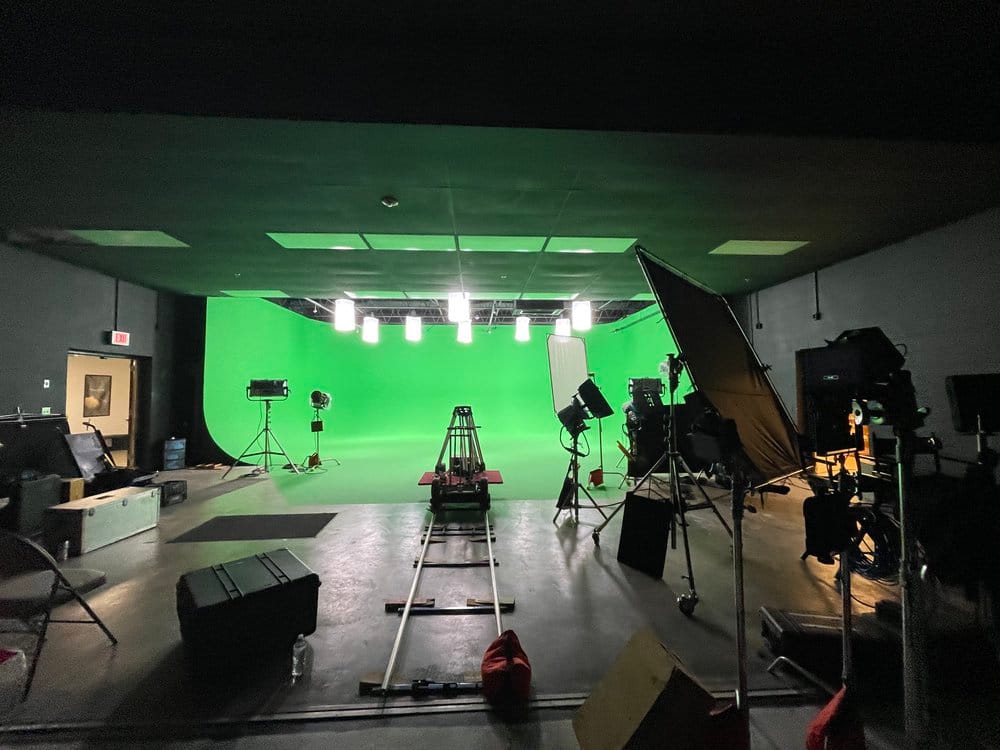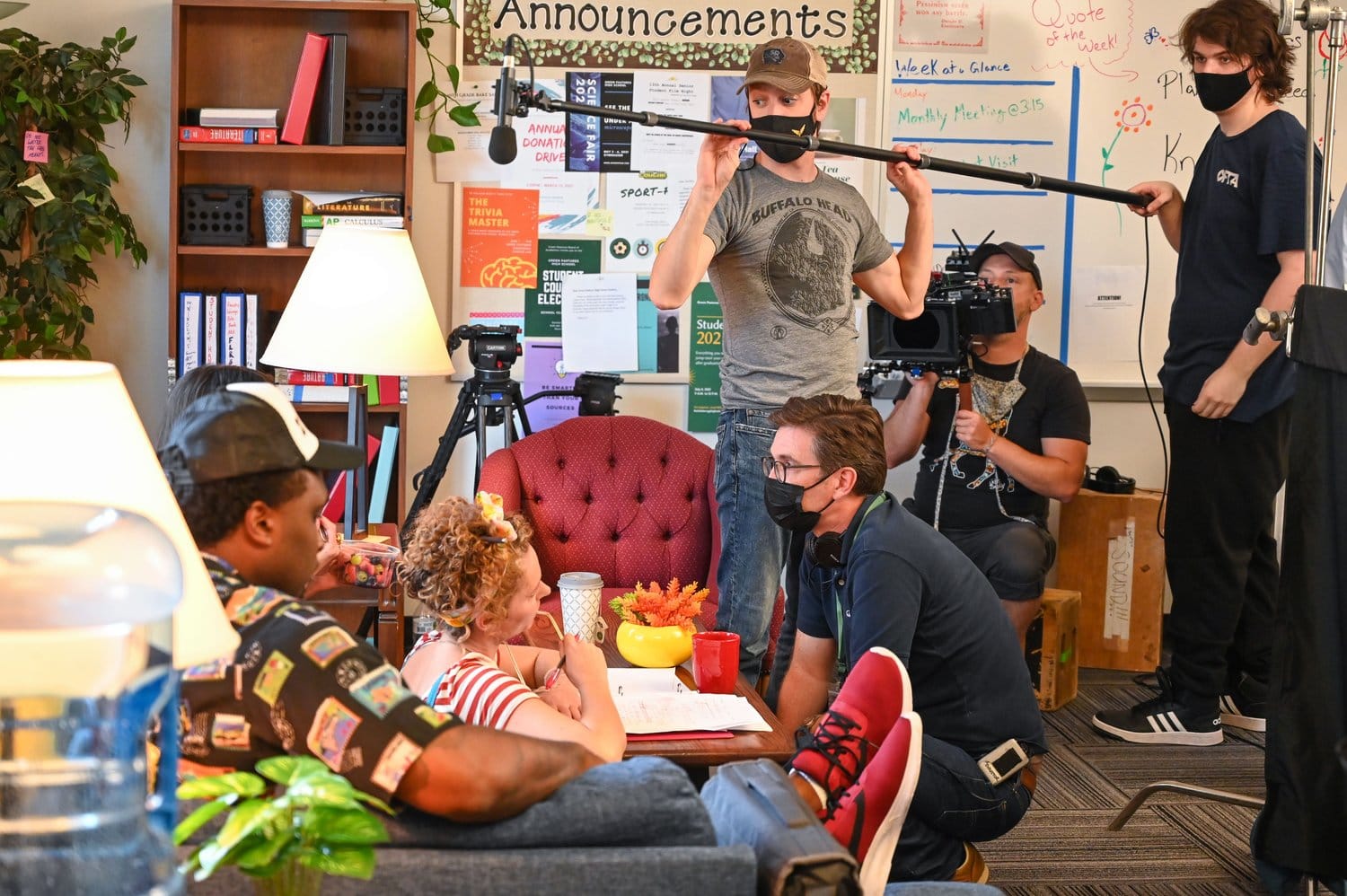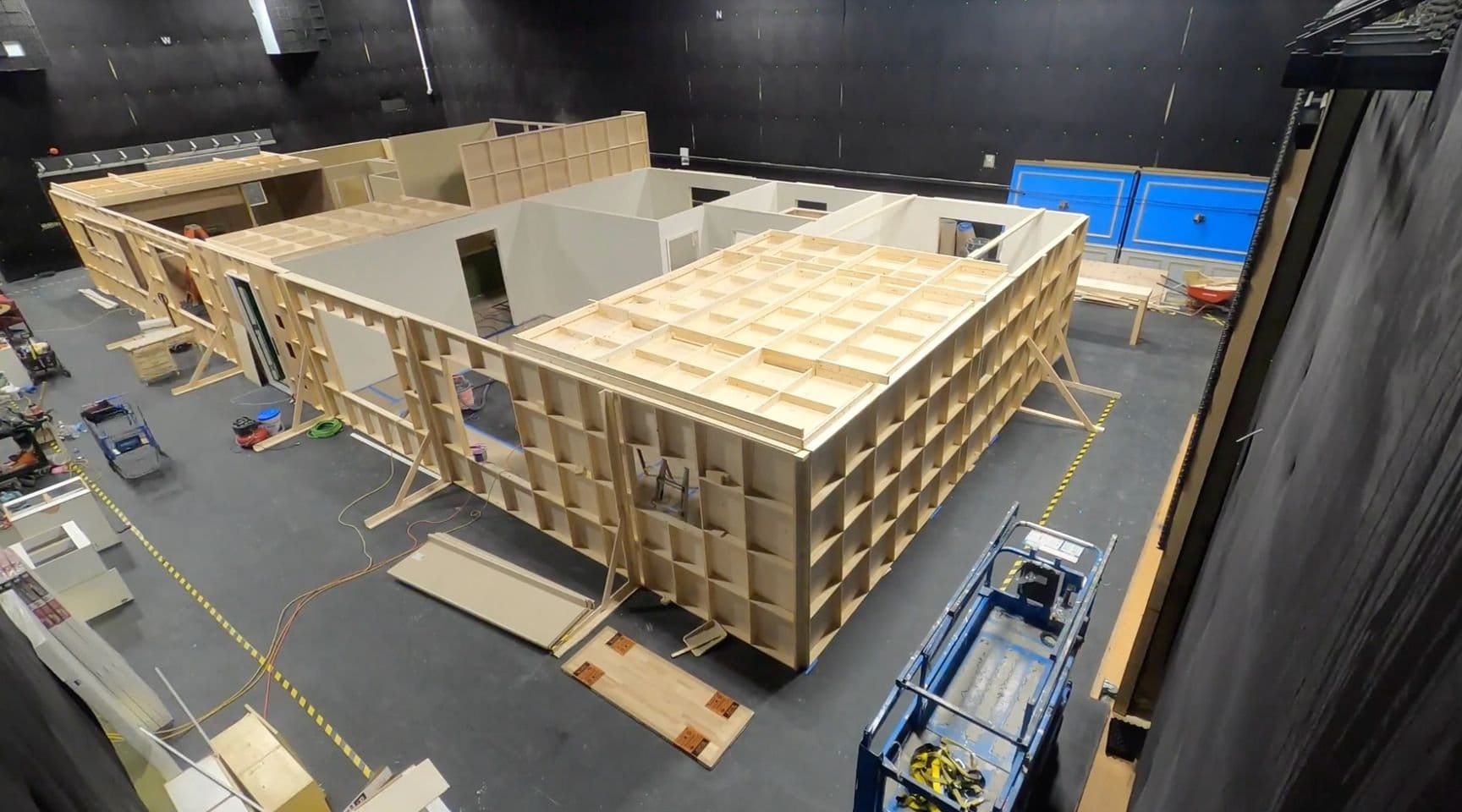
Movies often have an origin story — whether it’s Peter Parker being bitten by a radioactive spider or Charles Foster Kane leaving his boyhood sled behind, great narratives can stem from the simplest beginnings. Movie studios do, too. For Oklahoma’s Green Pastures Studio, its origin story began innocently enough with a date almost two decades ago in Los Angeles. That is when founders Amy and Richard Janes met for the first time.
Along with usual first date talking points, the pair found they had a similar dream to build a filmmaker’s ranch.
“The idea would be something outside of Hollywood where filmmakers can come together and be brave in the way that they execute ideas,” Richard says. “Careers can grow and stories can be told that are of value to the world. But it had to happen outside of Hollywood. We had no idea how we were going to achieve this, but we both had this dream. It was bizarre.”
The Janeses’ dream materialized in 2020 when the they partnered with Melodie Garneau and opened Green Pastures Studio in Spencer, a town of less than 3,000 that’s on the outskirts of Oklahoma City.
The studio sits on a 12-acre campus and houses three sound stages, including a fully outfitted 5,500-square-foot stage that rivals any to be found in Los Angeles or Atlanta, according to Amy. Green Pastures provides all the creature comforts that are needed to make Hollywood features or smaller-budget independent films.
In less than three years, Green Pastures has been the locale of choice for several TV and film productions such as “Finding Carlos,” What Rhymes With Reason and Hostage House. Those were outside productions for which Green Pastures provided studio and support services. However, the company has been busy with its own in-house productions as well. They include titles such as “Faculty Lounging,” Cricket’s Requiem (2023) and the documentary Finding Cricket’s Choir (2023), which were filmed exclusively at Green Pastures studio or on location around the state.
Despite the pandemic, Green Pastures opened shop at almost the perfect time.
“In those early COVID periods, a lot of people were losing their jobs. During that time, everywhere in the country shut down,” says Richard. “But Gov. (Kevin) Stitt said that the film industry was an essential business, so we carried on shooting. For a brief period, we were one of the busiest states in the country for films. That put us on the map for massive growth.”


Sooner State Serendipity
Because of places like Green Pastures and Prairie Surf Media, Oklahoma is joining the ranks of California and Atlanta as among the most sought-after areas for filmmakers. But it was almost a fluke that Richard, who is originally from England, and Amy, who resided in Los Angeles for 18 years, even ended up being part of the great movie revival in Oklahoma.
It wasn’t until they got married and had two children, Ella and Finn, that the Janeses finally decided it was time to make their dream happen. Still believing their filmmaker’s ranch could not take place within the Hollywood culture, they began to scour the country looking for the right location. The only stipulation was that the entire family had to agree on it.
For two years the Janeses toured the country until stumbling upon Oklahoma after a failed trip to Boulder, Colorado. It was definitely not the first location on their list. In fact, it wasn’t even on the list.
“We ended up coming out here to a friend that said her parents own a farm in Jones, Oklahoma. It’s fairly close to jump on a plane and go and ride some horses for a few days and forget about this moving malarkey,” Richard remembers. “So, we came out here and within 24-48 hours, all of us looked at each other and said, ‘Does this feel like home to you? Because it does to me.’ And we moved here three months later. It really was the best thing we ever did in our life. All four of us have absolutely flourished here.”
Soon after that, the Janeses found the Green Pastures Elementary School in Spencer. Built during the early days before school desegregation (1954), the school was originally part of the Dunjee Negro School System, which also included a middle school and high school. After a tumultuous history of closures and reopenings, the elementary school closed for good in 2018.
But when the Janeses saw the building and the surrounding land, they knew it was the perfect location for their filmmaker’s ranch. However, to honor the history of the school district and the 120-year old city, which is still predominantly African American, the Janeses decided to keep the name Green Pastures for the studio. Even more importantly, the Janeses wanted to make Green Pastures a truly community-driven film company. They weren’t just looking to just bring in employees from around the country; they wanted to bring the industry to
Spencer and the surrounding area. That is done primarily through the Oklahoma Film and TV Academy hallmark course called Set Ready.
“The course trains people to enter the industry as a production assistant,” Richard says. “But we also offer over 25 other courses ranging from film accounting and budgeting through to set construction and sound.”
The courses have paved the way for area residents to get a foothold in the film industry. One Spencer native, Denard Hunt, who had lost his job in the oil fields, was persuaded to take a course after he saw the Janeses out in front of his old school and asked what they were doing. That one question led to him entering the training course that happened to be starting that weekend in 2020. Hunt went on to become the Lionsgate Film Studio’s first diversity apprentice on a major motion picture.

“He did such a brilliant job, they brought him onto the next film,” Amy says. “All of a sudden, this man went from losing a job … to working regularly on a film set.”
Hunt is one of 500 people who have gone through the courses looking to build careers in an industry that was foreign to them just a few short years ago. The Janeses estimate that at least 50 of them had ties to Green Pastures/Dunjee Negro Schools based on attendance by the students or their parents or grandparents.
“We have been working regularly, graduating students and putting them straight out into the industry since then,” Richard adds. “The idea was we build the studio out to service the production, but we also produce a lot of our own content. We have stuff that we shoot here ourselves, we have stuff that we shoot with a third party. And the underlying basis for everything we do is the training program and education.”
But whether it’s the new online version or in-person courses, Green Pastures is about getting its students prepared and knowledgeable to grow in the industry.
“A lot of [what] people think about coming to some school that teaches you how to do film is that you’re only going to learn how to use a camera and how to do sound,” Richard says. “We don’t teach any of that. What you are going to be trained for is a production assistant. It’s going to be paperwork, bringing the actors to the set. It is going to be bringing the background to the set. In these positions, there is a huge amount to understand. But that’s what we’re training for. We’re training for the actual job you’re going to be doing.”
The Janeses own an advertising agency in Los Angeles and Dallas, with clients that include Toyota Financial Services, Lexus Financial Services, Monster Energy, Red Bull and other mainstream brands. This has allowed them to not take a paycheck since opening the studio; everything they make is reinvested back into the studio and the training program.
The Janeses know that arrangement can’t last long-term. Even though they have no outside investors, at some point the studio will have to show a profit and be self-sustainable. However, they are already planning on expanding the studio to 200,000 square feet with the addition of two more sound stages.
With more than $2 million of their own money already invested in Green Pastures and another $5 million planned for the expansion, Amy and Richard are showing they are going all-in on making Oklahoma a major player in the film industry for years to come.
“I think we’re about three years away,” Richard said. “In three years, we’re going to be able to support the big shows where they can come in and they can hire local and they can trust local. What we’re looking to do here is start that next version of a Walt Disney. Only it is Oklahoma-centric.”

